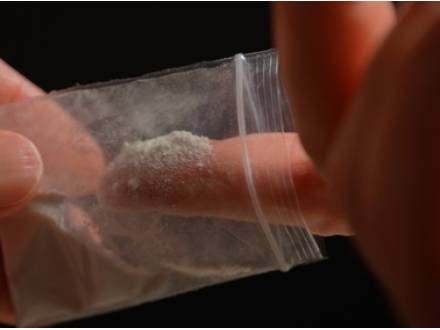Are Fentanyl-Related Crimes Considered Class X Felonies in Illinois?
 Fentanyl is one of the most powerful and dangerous drugs in the United States. Even a tiny amount can cause an overdose or death. If you are accused of possessing or selling fentanyl, you could face a Class X felony charge, which carries significant penalties. The first step in challenging the charges against you is to hire an experienced Naperville, IL drug crimes defense lawyer. We will review your case, explain what the charges mean, and help you understand your legal options.
Fentanyl is one of the most powerful and dangerous drugs in the United States. Even a tiny amount can cause an overdose or death. If you are accused of possessing or selling fentanyl, you could face a Class X felony charge, which carries significant penalties. The first step in challenging the charges against you is to hire an experienced Naperville, IL drug crimes defense lawyer. We will review your case, explain what the charges mean, and help you understand your legal options.
Why Is Fentanyl Treated So Harshly Under Illinois Law?
Fentanyl is an approved prescription medication. However, the version of it that is commonly related to overdose is made illegally. As of 2025, it is listed as a Schedule II controlled substance under the Illinois Controlled Substances Act. This means it has limited medical uses but a high risk of abuse and addiction.
The laws related to this drug are harsh. However, these laws can sometimes punish individuals who are struggling with addiction rather than large-scale drug dealers. This is why having an experienced defense attorney is so important.
When Does a Fentanyl-Related Charge Become a Class X Felony in Illinois?
Not every fentanyl-related offense qualifies as a Class X felony. The level of the charge depends on the quantity of fentanyl involved and the conduct alleged by law enforcement. Under 720 ILCS 570/401, a person may face a Class X felony charge for delivering or intending to deliver 15 grams or more of fentanyl. A conviction can result in six to 30 years imprisonment, depending on the amount and any past criminal history. Fines can reach $500,000 or more, and probation is not an option.
Smaller quantities may result in Class 1 or Class 2 felony charges, which still carry significant penalties but might allow for probation in limited circumstances. Penalties can increase if the alleged offense takes place near a school or public park. The same is true if any minors are involved.
Defenses Against Fentanyl-Related Charges
Even if the evidence seems strong, some defenses can help your case. A defense attorney can look for legal or procedural errors, such as:
-
Illegal search or seizure: Police may have collected evidence in violation of your constitutional rights. Evidence found during an unlawful search can sometimes be excluded from court.
-
Lack of intent to deliver: The facts may show that the drugs were for personal use rather than distribution. This can reduce the severity of the charge.
-
Testing errors: Laboratory results can be incorrect due to contamination or mistakes in handling the evidence. These errors can lead to false conclusions about the substance.
-
Entrapment: Law enforcement may have persuaded or pressured you to commit a crime that you would not have otherwise committed.
Your attorney may be able to negotiate with prosecutors for reduced charges or entry into a drug treatment program instead of prison.
Schedule a Free Consultation With a Naperville, IL Drug Crimes Defense Attorney
You have rights and options when facing a serious drug charge, and the Law Office of Philip R. Nathe can help. Attorney Nathe is a former Assistant State’s Attorney for DuPage County. He understands how prosecutors build their cases and will use that knowledge to create a strong defense for you.
If you are facing a fentanyl-related charge, contact our Naperville, IL drug crimes defense lawyer today to schedule a free consultation. Let Attorney Philip R. Nathe put his 25+ years of legal experience to work for you.














